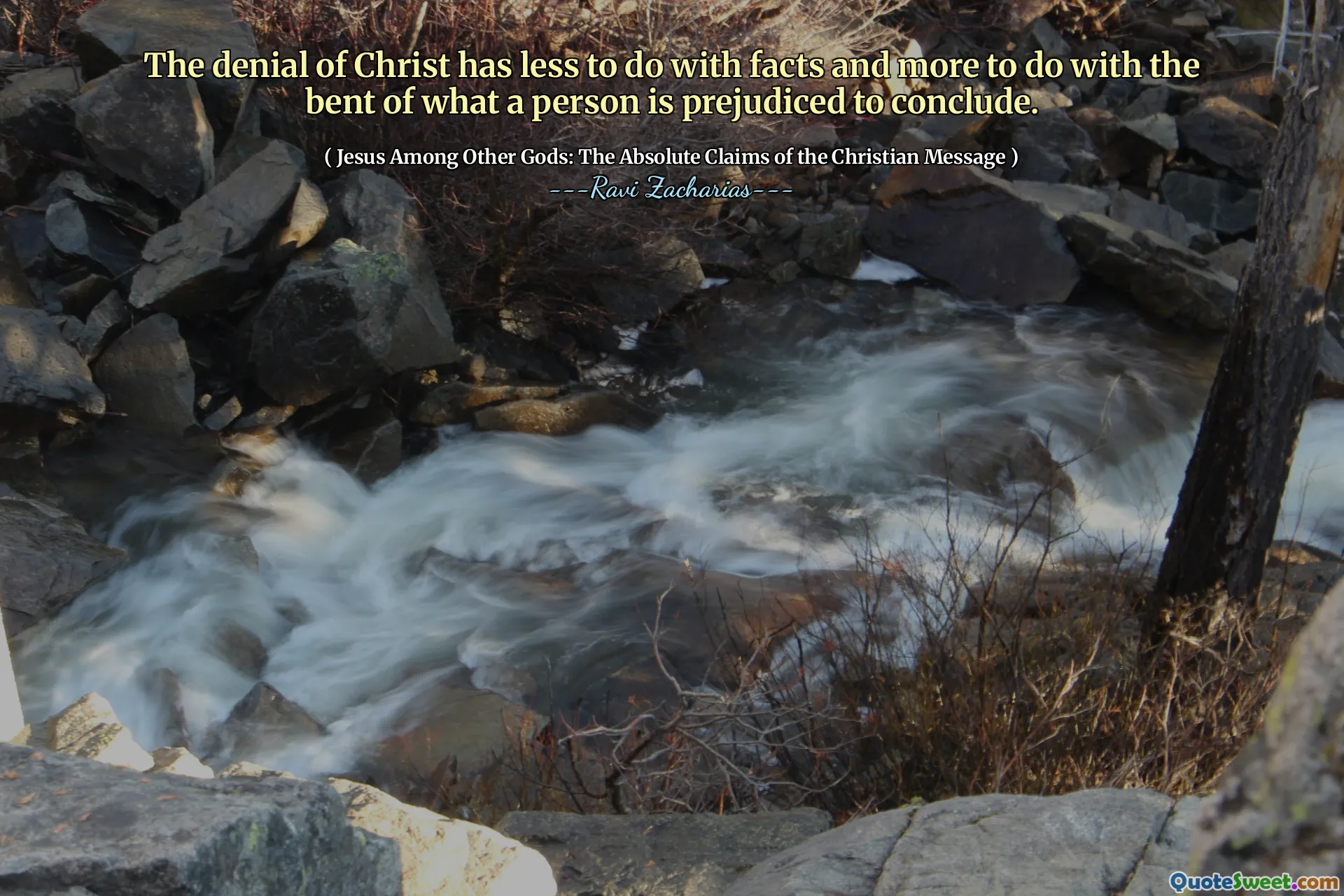
The denial of Christ has less to do with facts and more to do with the bent of what a person is prejudiced to conclude.
The quote by Ravi Zacharias underscores a profound truth about human perception and belief—often, our convictions are shaped more by our biases and preconceived notions than by objective evidence. When considering why individuals deny or accept the existence and significance of Christ, it becomes clear that psychological, cultural, and personal biases play a critical role. For some, their worldview may be so entrenched that challenging their beliefs feels threatening; hence, they dismiss the facts that might contradict their prejudiced assumptions.
This notion invites us to reflect on the nature of truth and belief. It suggests that faith, or the lack thereof, isn't merely a matter of intellectual understanding of facts but is intertwined with identity, experiences, and emotional comfort zones. People tend to interpret information in a way that aligns with their existing worldview, a phenomenon known as confirmation bias. This bias can cause someone to overlook compelling evidence or logical arguments simply because they threaten their tightly held prejudices.
Understanding this is crucial for fostering respectful dialogue about faith and beliefs. It reminds us to approach others' convictions with humility, recognizing that their perspectives are shaped not solely by facts but by complex inner worlds. The quote also challenges us to examine our prejudices and biases—are we open to genuine truth, or are our minds clouded by prejudgments that prevent us from seeing reality?
Ultimately, embracing this perspective can lead to more compassionate conversations and a deeper appreciation of the human complexity behind beliefs. It points to the importance of humility in discussing spiritual matters and encourages us to consider that true understanding might require overcoming personal prejudgments.
(Jesus Among Other Gods: The Absolute Claims of the Christian Message)







